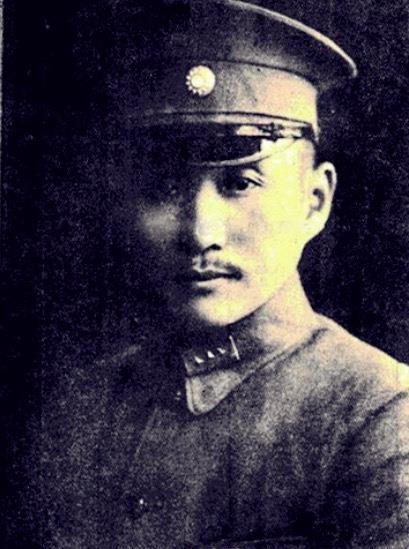Liu Jianxu is a fellow hunan resident.

After the outbreak of the War of Resistance Against Japanese Aggression, Liu Jianxu's Fourth Route Army was reorganized into the Tenth Army and transferred to Shanghai to participate in the Battle of Songhu.
As a graduate of the Baoding Army Officer School, Liu Jianxu had a spirit of not being afraid of death when he fought. When he commanded the Tenth Army to fight, he always disregarded his own safety and personally went to the front line to inspect the terrain, when his subordinates advised him not to take risks, but Liu Jianxu said: "The Japanese invaded our land, the people are not happy, all the sons and daughters of China have the responsibility to defend the country, as the commander-in-chief, I should set an example!" ”
When the subordinates heard this, they were deeply impressed by it, and their morale was greatly boosted. The Tenth Army also became famous on the Songhu battlefield, and Liu Jianxu was also appreciated by Chiang Kai-shek, and after the war, he was promoted to deputy commander of the 3rd Theater.
But Liu Jianxu was not Chiang Kai-shek's concubine after all. In 1941, he was transferred to the Chairman of the Fujian Provincial Government.
Liu Jianxu was a graduate of the 3rd Artillery Section of the Baoding Army Officer School and joined the Xiang Army in his early years. He successively served as the commander of the 27th Regiment of the 9th Brigade of the 4th Division of the Xiang Army, and the commander of the 4th Brigade of the 1st Division of the 8th Army of the National Revolutionary Army. Later, he followed Chiang Kai-shek to participate in the encirclement and suppression of the Red Army, and formed a lot of grievances with the Red Army. It is the duty of a soldier to carry out orders, and it is also a duty for him to lead his troops to fight the Red Army.
Since 1941, when he was the chairman of the Fujian Provincial Government, he still tried to help the Communist Party as much as possible and strived not to offend in many ways. He used his connections to protect and transfer a large number of underground CCP members; in 1948, when a wave of students broke out in Fujian, he secretly informed Concordia University, so that a group of student leaders could be transferred in time to avoid persecution by secret agents. Therefore, during this period, he was still quite "pro-communist" to a certain extent.
Later, the People's Liberation Army army went south, the Chiang family dynasty was about to collapse, and Liu Jianxu resigned as provincial chairman and returned to Hunan. When he learned that Cheng Qian and others were brewing uprisings, he secretly agreed.
In the spring of 1949, Liu Jianxu, like many Kuomintang politicians, went to Hong Kong with his family to settle down. In Hong Kong, together with Liu Fei, Long Yun, Li Moyi, and more than 40 members of the Kuomintang Central Committee and legislators, he issued a joint declaration entitled "Our Understanding and Propositions of the Chinese Revolution at the Present Stage," expressing a clear line with the Kuomintang and supporting the CPC in building a new China. Upon hearing the news, our party was quite encouraged and expressed its warm welcome to Liu Jianxu and other Kuomintang political figures to return to Beijing and contribute to the building of new China.
However, Liu Jianxu had doubts after all, and the vendetta he had formed with the Red Army was afraid that he could not be resolved for a while, so he did not dare to return to Beijing for a long time and has been living in Hong Kong.
In June 1950, the Korean War broke out, and Liu Jianxu, who lived in Hong Kong, misjudged the situation. He believed that in this Korean War, the newly established New China must be inferior to the powerful US imperialists, so he chose speculation. In early 1951, Liu Jianxu published anti-communist notices in Hong Kong newspapers, sold his stake in the Bank of Reconstruction, and fled to Brazil, a major South American country.
After Liu Jianxu and his family arrived in Brazil, a large south American country, they opened their own farm. Since then, he has never returned to the homeland where he was born and raised. In March 1978, Liu Jianxu died in a foreign country: Brazil, at the age of 88.